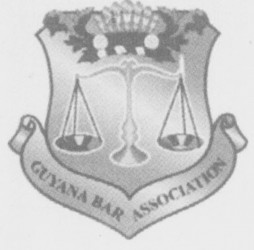The acting appointments of Chancellor Carl Singh and Chief Justice Ian Chang have extended beyond ten years. An article appearing in the Stabroek News on June 25, 2015 quoted President Granger as referring to a deadlock since April 2005 between then president Bharrat Jagdeo and leader of the opposition Robert Corbin on the issue of the appointments of the country’s two top judicial officers.
For clarity it is worth noting that while there are two acting appointments, there is only one substantive vacancy: Justice Carl Singh is in fact the appointed Chief Justice and it is only if he resigns or is confirmed in the position of Chancellor that two vacancies will arise.
 President Granger’s position on the question of the acting appointments has been very consistent. In opposition he repeatedly asked for a transparent process to be used to fill the posts by way of advertisement and applications. In 2013, he had said that if either Justice Singh or Justice Chang applied for the post and were reviewed and chosen by a panel then he would not object to their appointment.
President Granger’s position on the question of the acting appointments has been very consistent. In opposition he repeatedly asked for a transparent process to be used to fill the posts by way of advertisement and applications. In 2013, he had said that if either Justice Singh or Justice Chang applied for the post and were reviewed and chosen by a panel then he would not object to their appointment.
Following the elections of May 11, 2015, the government announced through Minister of State Joseph Harmon, that it would be proceeding with its plan to extend advertisements for the posts of Chancellor and Chief Justice to the Caribbean territories. More than four months later, the Guyana Bar Association is unaware of any developments in the matter.
Since this cannot be an oversight, it must be assumed either that President has since changed his mind (unlikely), or that other issues have taken priority. Whatever it is, such further delays are unacceptable.
In his pronouncements on the matter, Mr Granger had always taken pains to state that he was not opposed to either judicial officer being confirmed but that he wanted their appointment to be the result of a transparent process. The Bar Association is unaware of the reasons why that eminently sensible approach did not find favour with former presidents Jagdeo and Ramotar. As a body, the Association takes no position on the persons acting in the two posts except to state our deep concern that the delay to have the posts filled has gone on for far too long and to express the view that the delay does considerable harm to the judicial system and process.
It is accepted that acting appointments have implications for the rule of law and the independence of the judiciary. The Latimer House Guidelines Principle II Preserving Judicial Independence states that: “Judicial appointments should normally be permanent; whilst in some jurisdictions, contract appointments may be inevitable, such appointments should be subject to appropriate security of tenure.”
The exception of contract appointments does not apply to Guyana.
Similar principles have been adopted by the International Bar Association of which the Guyana Bar Association recently gained membership; and most recently, on 9 July 2015, Commonwealth Office in London launched a Compendium on the Appointment, Tenure and Removal of Judges.
It may well be that both Messrs Singh and Chang are utterly impervious to the effect of uncertainty inherent in the positions in which they operate. It may well be too, that their conduct of cases and their decisions are made uninfluenced, even subliminally, by their circumstances. But the rule of law requires public confidence in the judiciary. Such confidence is particularly difficult to win when acting appointees are called upon to pronounce on matters of a political nature.
Let us restate the constitutional provisions for the appointment of persons as Chancellor and Chief Justice. Article 127 prescribes in paragraph (1) that they are appointed by the President after obtaining the agreement of the Leader of the Opposition. And paragraph (2) provides that if the office of the Chancellor is vacant (it is), or if the person holding the Chief Justice is for any reason unable to perform the functions of his office (he is, since he is performing the functions of Chancellor), the functions are to be performed by such judges appointed by the President after “meaningful consultation” with the Leader of the Opposition.
One has to assume that meaningful consultation as defined in Article 232 took place over the acting appointments but it would be quite revealing to learn whether the objections of both Messrs Corbin and Granger, with whom Mr Jagdeo was required to consult in their capacities as leader of the opposition, were similar. The written record of the consultation required to be made and circulated to the persons consulted would be quite helpful to transparency, the principle which has undergirded Mr Granger’s objections.
The rare, if not unique situation where a country’s two top judicial officers have been acting for more than ten years in each case has gone beyond the point of mere unacceptability. Indeed, it has persisted for so long that neither the acting Chancellor nor the acting Chief Justice caries out their respective functions as if they were in some interim role. As Chief Justice performing the functions of the Chancellor, Mr Carl Singh, has initiated some major changes in the legal system including the establishment and expansion of the Commercial Court, the Constitutional/Administrative Division of the High Court and more recently the Family Court. Such changes are usually not undertaken by persons who are in acting positions but the work of the Courts must go on, whatever the politicians do, or do not do.
The Granger Administration has now had more than four months to bring some order to this messy situation. The Guyana Bar Association calls on it to act immediately.
